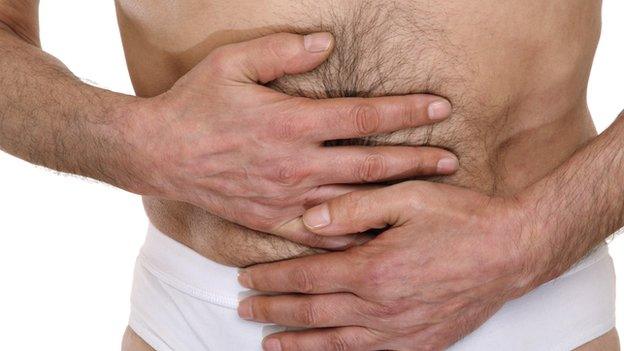IBS trial to test amitriptyline as potential common treatment
- Published
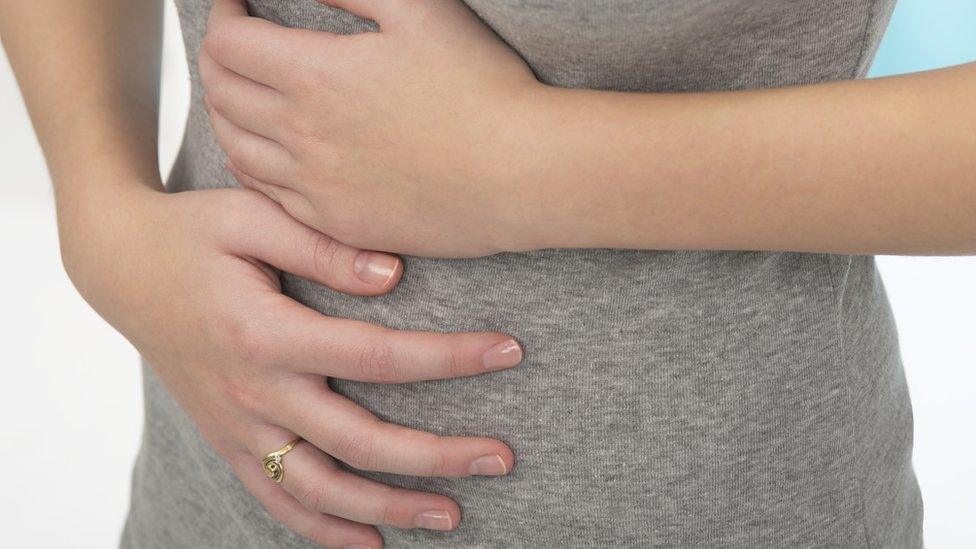
IBS can cause abdominal pain among other issues
A medical trial is being held to see if a drug developed as an anti-depressant could become a common treatment for Irritable Bowel Syndrome (IBS).
Amitriptyline has sometimes been prescribed to people with IBS when other treatments have been ineffective.
But experts said they needed to know more about why the drug helps before it can become more widely used.
A group of 500 volunteers is now being recruited from GP surgeries around Bristol, Leeds and Southampton.
According to charity the IBS Network, external, the condition affects about 12 million people in the UK.
There is no cure and patients can experience abdominal pain, bloating and constipation, among other symptoms.
Experts at the University of Bristol are leading the medical trial, which is called Atlantis.
The 500 test patients will be given either amitriptyline, external or a placebo tablet for six months and their symptoms and mood checked regularly.
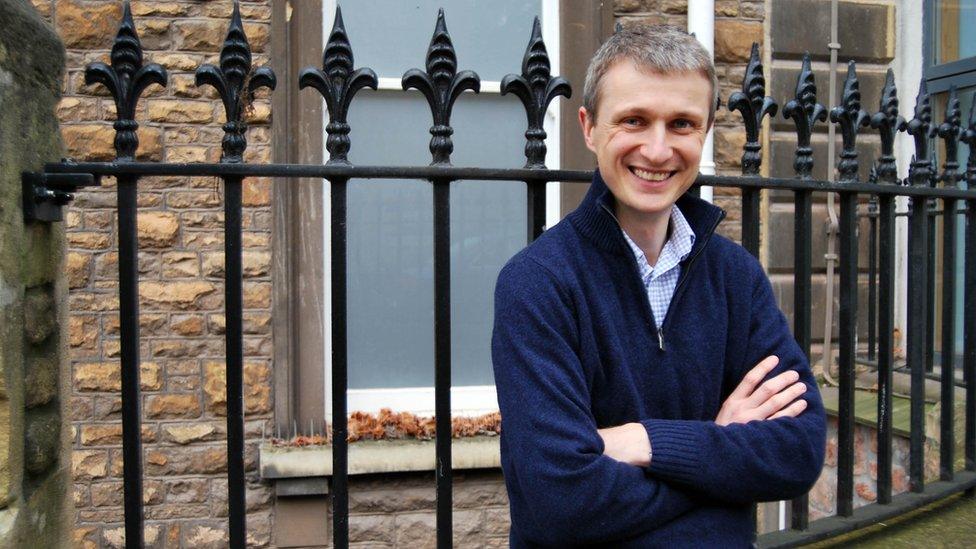
The study will be led by Dr Matthew Ridd from Bristol University
Dr Matthew Ridd, a GP and a senior researcher at the University of Bristol, is co-ordinating the research.
He said: "I have prescribed it [amitriptyline] occasionally in my practice but there continues to be uncertainty about it as a treatment. There just isn't the research to be sure.
"Our exact understanding of the biological mechanism of how it works is imperfect.
"We need this research to know if it can be another tool in our toolbox as a first line of treatment."
Dr Rudd said the Atlantis trial, which also involves the University of Leeds and the University of Southampton, would be the biggest of its type.
The volunteers will be recruited through a network of 75 GP surgeries in Bristol, Leeds and Southampton and will need to be signed off by their doctor before taking part.

IBS 'felt like being stabbed'
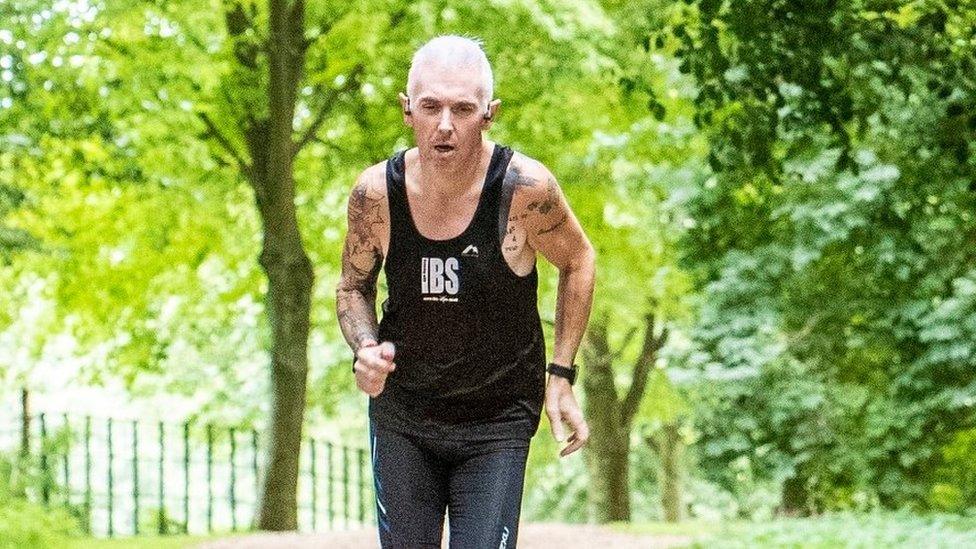
Jeff Finnie suffered from IBS after losing three stone
Jeff Finnie began suffering from IBS after losing weight when he took up running.
The 52-year-old from Swindon said his problems started when he dropped from 14 to 11 stone (89kg to 70kg).
He said: "It was around that time that I started getting really bad eczema on my elbows and scalp and also bad stomach cramps and bloating on a regular basis.
"The cramps felt as if someone had a knife sticking in me and they were turning the blade, it was really bad."
Mr Finnie said his doctor was baffled and eventually he was sent for a colonoscopy.
To his relief, any form of cancer was ruled out and he was told he had IBS. But, he said, he was told he needed to learn to live with the condition.
He eventually managed to ease the symptoms by changing his diet, cutting out dairy products in particular.
Mr Finnie now runs marathons and uses his sponsorship money to raise awareness of IBS.
"People need to speak up more about the condition we face day in day out," he said.
"It's never going to go away and you are going to have to deal with it yourself and get to grips with your body and work out your triggers and relief."
- Published11 April 2019

- Published13 April 2019

- Published23 May 2019
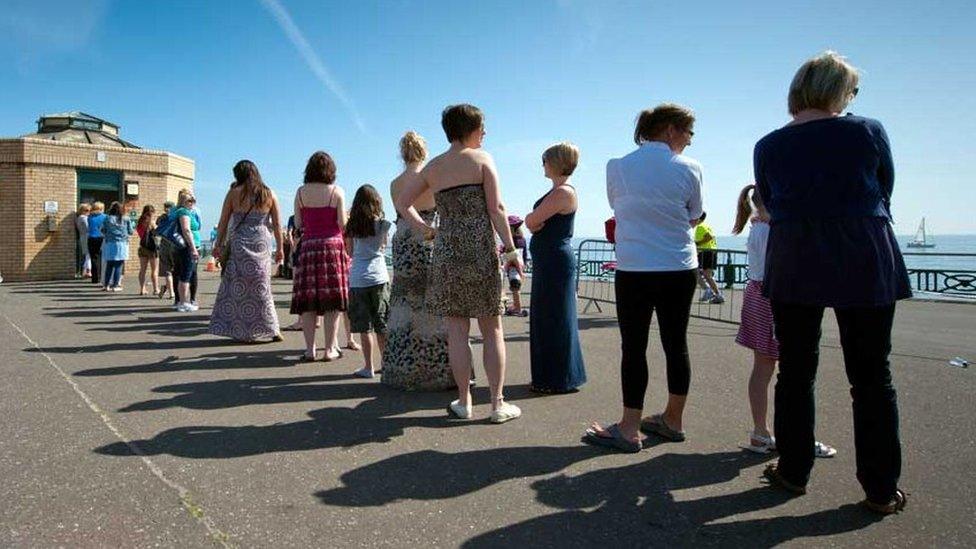
- Published28 March 2014
